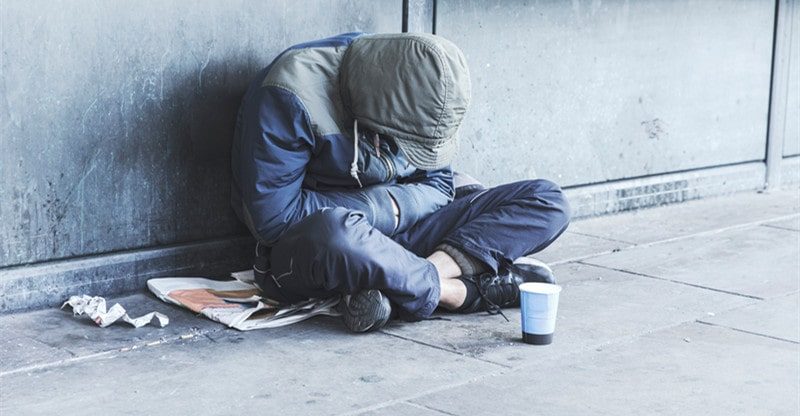The Slippery Slope: From Addiction to Homelessness
Addiction is a complex disease that can lead individuals down a dangerous path towards homelessness. The progression often starts with recreational drug or alcohol use that slowly becomes habitual and then compulsive. As substance abuse takes hold, it impacts every area of a person’s life, including their relationships, health, finances, and housing.
The Financial Impact
Addiction can have a devastating financial impact on individuals and families. Substance abuse problems like alcoholism or drug addiction often lead to enormous costs related to purchasing substances, healthcare expenses, and lost productivity.
An addicted person may spend hundreds or thousands of dollars per month to feed their habit. They might lose jobs or struggle to hold down steady work, reducing income. Addicts are also more likely to have poor health and require expensive medical treatment.
Families often bear the burden too, paying for rehabilitation programs or providing financial support. Bankruptcy, homelessness, and poverty are real risks. The financial consequences can linger for years even after achieving sobriety.
Rebuilding credit, savings, and assets is an uphill battle. While the primary focus is recovery, the monetary damages of addiction cannot be ignored. Individuals and families may be trapped in long-term financial distress. It illustrates why prevention and addiction treatment in Sonoma are critical.
Relationship Issues
Addiction can put tremendous strain on relationships. Loved ones feel hurt and betrayed as the addict lies, steals, and breaks promises. They may pour time, money, and emotional energy into trying to fix the addict and make them stop. This creates a cycle of hope and disappointment when the addict relapses.
Boundaries get blurred as the addict manipulates and family members enable. Resentment builds on both sides. The addict feels judged while the family feels burdened. Open communication shuts down. Trust and intimacy are lost.
The relationship becomes centered on anxiety, guilt, and enabling the addiction, rather than mutual care, support, and growth. For the relationship to heal, the addict needs treatment and committed recovery, and both parties likely need counseling to rebuild trust and reset boundaries.
Lack of Treatment Due to High Costs
Due to the lack of affordable healthcare and treatment options, many struggling with substance abuse go untreated. The costs of rehab and ongoing therapy are simply out of reach for most. Even those with insurance coverage often find that their policies provide inadequate support for comprehensive addiction treatment. Furthermore, many areas of the country suffer from a shortage of addiction medicine specialists and facilities.
Without accessible and affordable care, people suffering from addiction face immense struggles to recover and rebuild their lives. Greater investment in addiction medicine and broader insurance coverage for treatment are badly needed. Addiction should be treated like any other chronic illness, with care, compassion, and coverage. With the proper resources, countless lives now derailed by addiction could be turned around.
Homeless and Substance Abuse Issues
Homelessness often becomes the result. Chronic addiction renders someone unable to work or pay rent. With no money, family support, or safe housing options, the streets become the only place to go. Hygiene, nutrition, and general health decline rapidly under the strains of homelessness. Opportunities for treatment and recovery dwindle as survival becomes the primary focus.
The longer someone remains trapped in homelessness fueled by addiction, the lower their chances of ever escaping. It is a cruel downward spiral that is difficult to break free from without substantial intervention and support. However, it does not have to be a life sentence.
With compassion, proper treatment resources, and a desire for change, recovery is possible. The slippery slope into addiction and homelessness can be reversed and replaced with a path toward healing.



